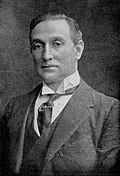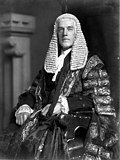This article needs additional citations for verification .(July 2014) |
| Solicitor General for England and Wales | |
|---|---|
 | |
| Attorney General's Office | |
| Style | Solicitor |
| Reports to | Attorney General for England and Wales |
| Appointer | The Monarch on the advice of the Prime Minister |
| Term length | At His Majesty's Pleasure |
| Formation | Before 1460 |
| Salary | £142,106 per annum (2022) [1] (including £84,144 MP salary) [2] |
| Website | www |
His Majesty's Solicitor General for England and Wales, known informally as the Solicitor General, is one of the law officers of the Crown in the government of the United Kingdom. They are the deputy of the Attorney General, whose duty is to advise the Crown and Cabinet on the law. They exercise the powers of the Attorney General which are delegated to them under section 1 of the Law Officers Act 1997. Despite the title, the position is usually held by a barrister as opposed to a solicitor.
Contents
- Solicitors-General of England (and Wales), 1461–present
- 15th century
- 16th century
- 17th century
- 18th century
- 19th century
- 20th century
- 2001–present
- See also
- References
There is also a Solicitor General for Scotland, who is the deputy of the Lord Advocate. [3] As well as the Sovereign's Solicitor General, the Prince of Wales and a Queen consort (when the Sovereign is male) are also entitled to have an Attorney and Solicitor General, though the present Prince of Wales has only an Attorney General and no Solicitor General.
The Solicitor General is addressed in court as "Mr Solicitor" or "Ms Solicitor". The Solicitor General is shadowed by the Shadow Solicitor General who sits on the Official Opposition frontbench.
The current holder of the position is Ellie Reeves.


































